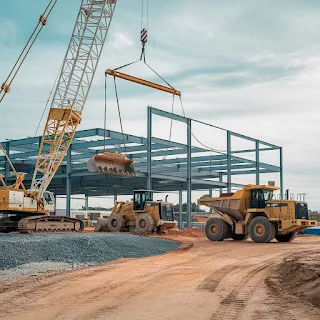How Startups are Solving India's Biggest Challenges: 10 Critical Issues and Innovative Solutions
India, with its vast and diverse landscape, has always been a country of great opportunities and formidable challenges. From rapid urbanization to a burgeoning population, India faces many issues that require immediate attention. Startups, driven by innovation, technology, and a desire for change, have emerged as a powerful force in solving some of these pressing problems.
India ranks third globally in producing unicorn startups, right after the United States and China. This rise of entrepreneurship has paved the way for innovative solutions to national challenges, helping to revitalize the economy and improve living conditions for millions. But what are the most critical problems in India that startups can help address? Let’s dive into the top 10 challenges startups are tackling and how they are making a real difference.
1. Unemployment: Startups Creating Jobs for the Future
India’s unemployment rate remains a significant concern, especially among the youth. As of 2021, unemployment was around 6.5%, with a substantial portion of the population under the age of 25. Startups are playing a crucial role in job creation. With the growing tech, e-commerce, and service sectors, startups are generating employment across various roles, from developers and marketers to customer service agents. By expanding rapidly, startups not only create more jobs but also provide opportunities for skill development, addressing both unemployment and underemployment issues in the country.
2. Democratizing Technology: Making Innovation Accessible
Startups are at the forefront of democratizing technology, ensuring its benefits reach even the most remote parts of India. Whether it’s telemedicine, online education, or renewable energy, startups are disrupting traditional industries by introducing affordable, accessible solutions. By leveraging new business models like subscription services, freemium offerings, and shared economies, these startups make technology more inclusive. For example, fintech startups have made financial services available to the unbanked population, empowering millions of people.
3. Capital Formation: Boosting Economic Growth
India's startup ecosystem is not just about creating jobs but also about driving economic growth. Startups attract massive investments from venture capitalists, angel investors, and even international corporations. This inflow of capital helps startups scale, innovate, and contribute to the GDP. Many startups also collaborate with research institutions and universities to fuel innovation, further promoting economic progress through knowledge-sharing and technology transfer.
4. Infrastructure Development: Transforming Cities
Startups are playing a vital role in improving urban infrastructure. As they flourish in various regions, they create ripple effects that extend beyond their immediate industry. Their growth fuels demand for supporting services such as housing, transportation, and retail, improving the city's infrastructure and providing jobs in ancillary industries. This economic activity helps accelerate regional development and improve the quality of life for local populations.
5. Improving Access to Education: Empowering the Next Generation
Startups are revolutionizing education by breaking down geographical barriers. With the help of online learning platforms, mobile applications, and remote learning resources, students from rural areas can access quality education that was once out of reach. Additionally, startups are addressing India’s skill gap by offering vocational training and skill development programs, equipping young people with the tools they need to succeed in a rapidly changing job market.
6. Urban Waste Management: Innovating for a Cleaner India
With rapid urbanization comes an increase in waste generation, posing severe challenges for cities across India. Startups are stepping up by developing innovative waste management solutions, such as tech-driven waste collection systems, recycling platforms, and organic waste-to-energy conversion methods. By optimizing waste management processes through technology, startups are reducing the burden on landfills and creating sustainable solutions for urban India.
7. City Pollution: Startups Combating Air and Water Pollution
Air and water pollution have reached alarming levels in many Indian cities, but startups are providing much-needed solutions. From air quality monitoring devices to pollution control technologies, these companies are helping cities reduce their pollution levels. Clean energy startups focusing on solar power, electric vehicles, and smart grids are leading the charge to transition India towards a cleaner, more sustainable future. Additionally, startups in water management are developing filtration systems and wastewater treatment technologies to address water contamination, ensuring safe drinking water for all.
8. Sanitation: Ensuring Healthier Communities
Access to proper sanitation remains a challenge in both urban and rural India. Startups are developing low-cost, eco-friendly sanitation solutions that address this critical issue. Innovative products like waterless toilets, biodegradable sanitation products, and smart sanitation systems are helping to reduce water waste and improve hygiene standards. These initiatives directly contribute to public health by preventing the spread of diseases and fostering a cleaner environment.
9. Water Management: Tackling Scarcity and Inefficiency
Water scarcity and inefficient management are ongoing problems in India. Startups are addressing these issues by introducing smart water meters, leak detection systems, and water purification technologies. These solutions help conserve water, reduce waste, and improve the efficiency of water distribution networks. Rainwater harvesting systems and wastewater recycling initiatives further enhance water management efforts, providing long-term solutions to India's water crisis.
10. Energy Crisis: Powering India with Renewable Energy
India’s growing energy demand, combined with limited fossil fuel reserves, has led to an ongoing energy crisis. Startups focused on renewable energy are crucial in addressing this problem. By developing solutions in solar, wind, biomass, and hydroelectric power, they are not only reducing dependence on non-renewable resources but also combating climate change.
These startups are introducing decentralized energy systems like microgrids and community-based solar projects, bringing sustainable energy to even the most remote regions of India.
Also Read: 10 Profitable Small Business Ideas for Rural Areas in India
Conclusion
Startups in India are not just businesses; they are catalysts for change. Through innovation, technology, and a commitment to solving real-world problems, they are creating a brighter, more sustainable future for millions of people. By addressing these critical challenges from unemployment and education to pollution and energy Indian startups are proving that entrepreneurship is not just about profits but about making a tangible impact on society.











